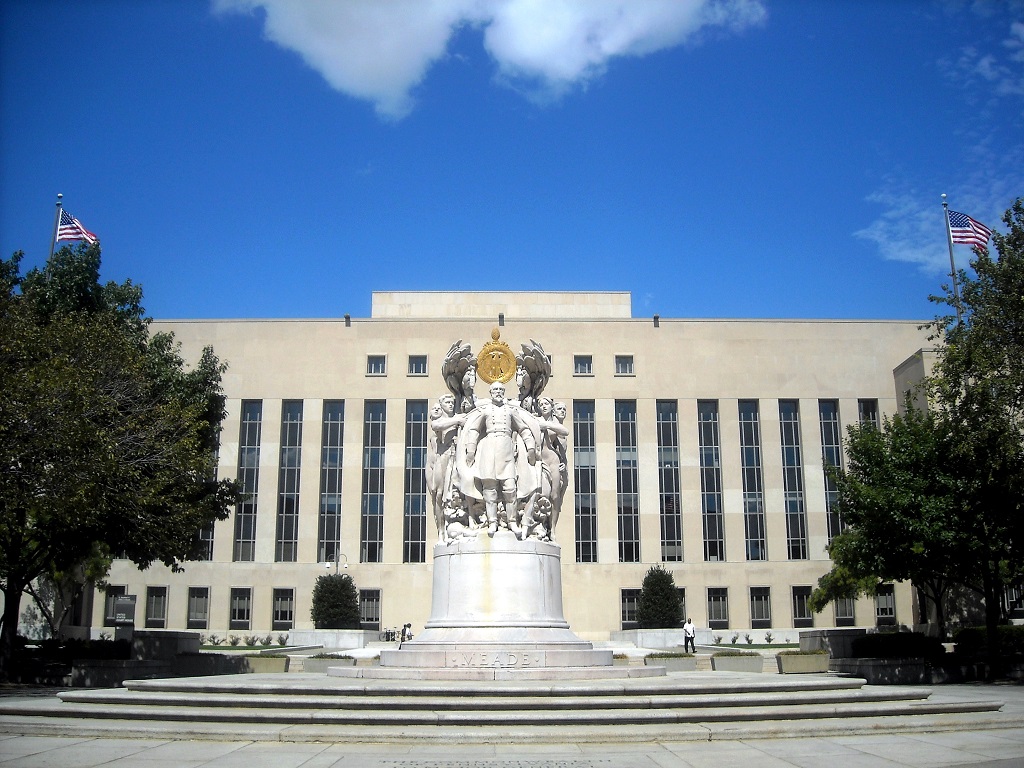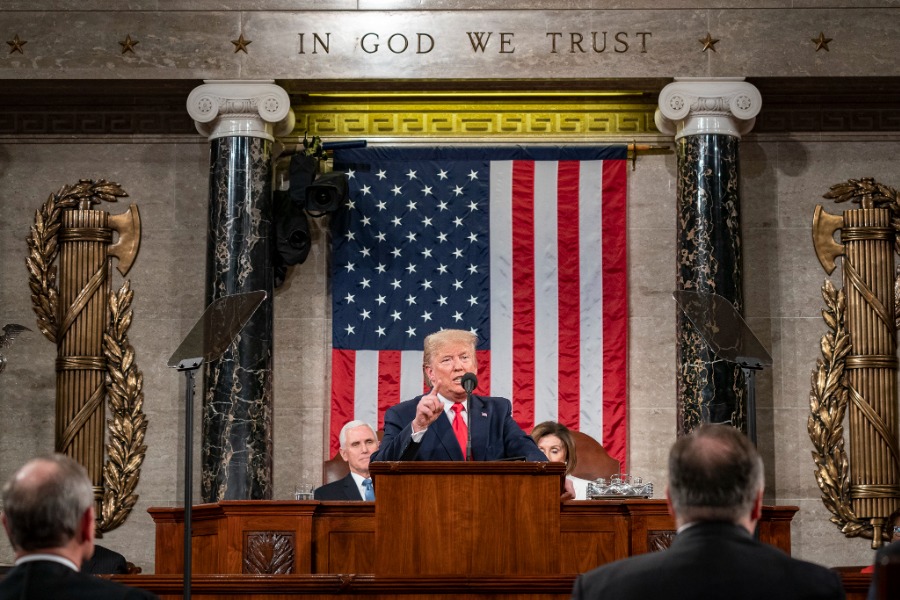Smith v. Trump: AUMF Challenge Pretrial Motion Summaries
As federal court and national security experts are noting, on Oct. 27, the D.C. Circuit will hear oral argument in Smith v. Trump (formerly Smith v. Obama). The case challenges the propriety of invoking the 2001 and 2002 authorizations for the use of military force (AUMF) to justify the war against the Islamic State (Operation Inherent Resolve).

Published by The Lawfare Institute
in Cooperation With

As federal court and national security experts are noting, on Oct. 27, the D.C. Circuit will hear oral argument in Smith v. Trump (formerly Smith v. Obama). The case challenges the propriety of invoking the 2001 and 2002 authorizations for the use of military force (AUMF) to justify the war against the Islamic State (Operation Inherent Resolve). For anyone trying to catch up on what’s happened in the case so far, the following provides a brief summary of the lower court ruling and arguments being made on appeal.
The appellant, Army Capt. Nathan Smith, initially brought his case on the claim that President Barack Obama failed to obtain the necessary “specific statutory authorization” from Congress to fight the war against the Islamic State, and that, therefore, Operation Inherent Resolve violated the War Powers Resolution. He sought only declaratory relief—a declaration by the court to authoritatively determine whether the operation was properly authorized.
On Nov. 21, 2016, Judge Colleen Kollar-Kotelly of the U.S. District Court for the District of Columbia dismissed his case on two grounds. First, the court found that Smith had not alleged “injury in fact” sufficient to give him Article III standing, as his uncertainty over the legality of Operation Inherent Resolve is neither concrete nor particularized. Second, the court held that the underlying claim was nonjusticiable under the political question doctrine; in order to resolve the question, the court would have to determine whether the president was correct that the 2001 and 2002 AUMFs cover Operation Inherent Resolve—an issue that, in the opinion of the court, is primarily committed to the political branches of government, and one that the court is ill-equipped to resolve.
Smith appealed. The case now names President Donald Trump as the appellee in place of Obama.
In his brief, filed on April 3, 2017, Smith argues that the district court erred. He claims that the forced choice between following the officer’s oath, which commands support of the Constitution, and obeying an illegal order from the commander-in-chief is injury in fact sufficient for Article III standing. With respect to the political question doctrine holding, he argues that the court is able to decide whether the president has violated statutory limitations on his authority, arguing that factual questions about the parameters of the AUMF are not questions reserved for the political branches.
On April 10, 2017, the Constitution Project filed an amicus brief addressing the justiciability issues presented. Presenting additional precedent in which the court has deemed similar issues justiciable, it supports the appellant’s argument that the court is not “ill-equipped” to resolve these particular factual issues, and that the judiciary may appropriately resolve what they frame as a clear disagreement between Congress and the president.
The Department of Justice (DOJ) filed its brief on June 9, 2017. DOJ directly counters Smith’s argument by arguing that uncertainty over whether Congress authorized Operation Inherent Resolve does not give rise to a concrete or particularized harm—thus falling short of the standard for standing. The DOJ also argues that the political question doctrine was properly applied by the district court, claiming that decisions about the use of military force are typically nonjusticiable. Finally, the DOJ argued that, even if the court finds that Smith has standing, and the matter is not a political question, declaratory relief is not available in this case. They argue that the court should not enter declaratory judgment against the president. The DOJ argues that, as with injunctive relief, declaratory relief here would require the court to order the president to take an official act. They also make the case that, even if the declaratory relief is available to Smith, the court has the discretion not to provide it, and should not because the judiciary should avoid wading into matters of foreign affairs unless there is clear abuse by the president.
Smith filed an initial reply brief on June 23; he then submitted two corrected briefs on June 30 and July 5 (making only minor changes to citations and phrasing). In his reply brief, Smith re-emphasizes that his injury does not rest on uncertainty about the legality of Operation Inherent Resolve but on his forced choice between violating his oath and disobeying the constitution. Smith’s reply brief also expands on the argument that congressional funding of the operation does not imply support for the operation, and challenges the DOJ’s claim that he cannot seek declaratory judgment against Trump; if he can’t, there may be no judicial remedy for violations of the War Powers Resolution, which cannot have been the result Congress intended.
Because this appeal is not on the merits, the court will not directly address whether Operation Inherent Resolve violated the War Powers Resolution. Therefore, the D.C. Circuit’s decision will not immediately impact the use of U.S. military force against ISIS in Iraq and Syria without a new AUMF. A ruling in Smith’s favor would, in theory, send the case back down to the district court to be decided on the merits, allowing this controversial issue to be addressed by the judiciary. It is highly likely, however, that any decision by the D.C. Circuit will be appealed, giving the Supreme Court a chance to weigh-in.





